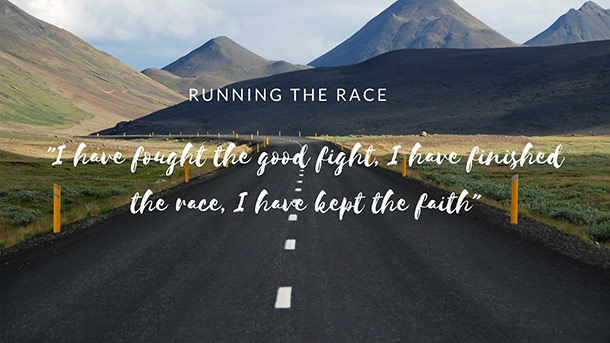|
“All
of us have a race to run towards our
appointed end”
.
by Basil the Great
Life's journey
We read in the Book of Psalms: “Blessed is the
one who walks not in the counsel of the
wicked, nor follows in the way of sinners.”
Life has been called a 'way because everything
that has been created is on the way to its
end.
When people are on a sea voyage, they can
sleep while they are being transported without
any effort of their own to their port of call.
The ship brings then closer to their goal
without their even knowing it. So we can be
transported nearer to the end of our life
without our noticing it, as time flows by
unceasingly. Time passes while you are asleep.
While you are awake time passes although you
may not notice.
All of us have a race to run towards our
appointed end. So we are all on the way'.
This is how you should think of the “way'. You
are a traveler in this life. Everything goes
past you and is left behind. You notice a
flower on the way, or some grass, or a stream,
or something worth looking at. You enjoy it
for a moment, then pass on. Maybe you come on
stones or rocks or crags or cliffs or fences,
or perhaps you meet wild beasts or reptiles or
thorn bushes or some other obstacles. You
suffer briefly then escape. That is what life
is like.
Pleasures do not last but pain is not
permanent either. The 'way does not belong to
you nor is the present under your control. But
as step succeeds step, enjoy each moment as it
comes and then continue on your 'way'.
The
Soul's Dizziness
There are two different roads, one broad and
easy, the other hard and narrow. And there are
two guides vying with each other to attract
the traveller's attention.
Now that we are grown to years of discretion
we see that life is an amalgam of vice and
virtue. The soul by casting its gaze first on
one and then on the other can calculate the
consequences of each.
The life of the sinner presents all the
pleasures of the present moment; the life of
the righteous points to future benefits.
The easy undisciplined way of life leads to
pleasure to be enjoyed now, not later; the way
of salvation is hard in the present, but
promises a beautiful future.
The soul is confused and dithers in its
calculations. It prefers pleasure when it is
looking at the present; it chooses virtue when
its eye is on eternity.
Commentary on Psalm I, 4, 5 (PG29, 22. 1ff.)
Basil the
Great, Gregory of Nazianzus, and Gregory of
Nyssa, were three important 4th century
theologians born in Cappadocia who were
responsible for precisely defining the
doctrine of the Trinity and clarifying the
errors of Arianism. They became known as the
Cappadocian Fathers.
Basil
the Great (329-379) was the older brother of
Gregory of Nyssa. After the best possible
education available at the time, Basil
withdrew from the world to a monastic life
near Neo-Caesarea in Pontus. He returned to
public life at the call of his bishop,
Eusebius of Caesarea, in Cappadocia, to join
in the battle against Arianism. He was
ordained priest to help Eusebius and in 370
succeeded him as bishop of Caesarea; this
office he held until his death. In 371 he
came into conflict with the Arian emperor
Valens, who divided Basil's province. Basil
was renowned in his own lifetime for his
learning, eloquence and personal holiness.
His exceptional organising ability left a
lasting imprint upon the shape and form of
Eastern monasticism and his charitable
foundations to help the needy survived
several hundred years.
|

